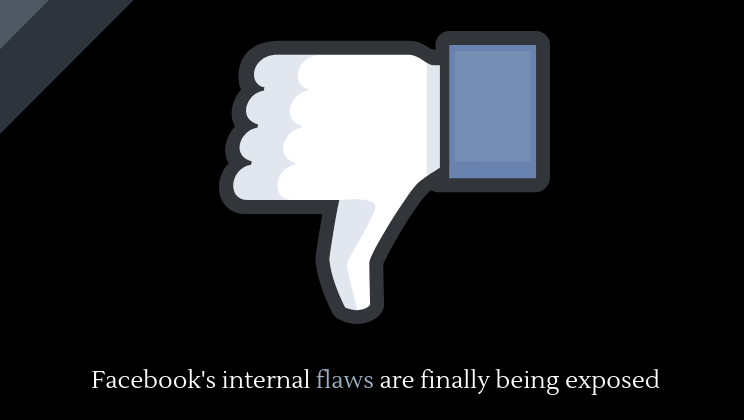Facebook’s internal flaws are finally being exposed
Posted by Josh Taylor / November 16, 2018
I deleted my Facebook account in 2008. I had been an early adopter, since my university was one of the first allowed to use the site. I loved it when I first made my account. Like my classmates, I agonized over my profile––a habit that carried over from the AIM profile days. I carefully cultivated a list of favorite books and music, I chose the perfect picture (and then took it down, and then chose a better one, and then finally went back to the first). The first few years were fun, but Facebook hardly had an impact on my life. It was just too small.
And then Facebook opened to public schools. People did not like that. Some just liked the elitism of Facebook at that time. Others like how small it was. Facebook further angered users when it rolled out the news feed function. I distinctly remember feeling disturbed when I saw all of my friends’ activity laid out in that timeline. So-and-so is now in a relationship? What the hell, we’d been poking back and forth for a month!
When the great Opening happened in 2008, I knew my time on the site was limited. First some people from high school found me, and that made me feel very uncomfortable. I was not a cool guy in high school, and I didn’t want to feel beholden to that version of myself. When my grandmother found me, I knew it was time to go. It’s not that my grandma isn’t a gem of a woman, because she is, it’s that I don’t like my life being on display. So I deactivated and never looked back.
In the ten years since I deactivated The Facebook (ah, the good old days when “The” was still there), I’ve watched it grow as a dispassionate outsider. It was interesting to see it spread around the world, but I didn’t think much of it. That changed when I saw it cause schisms within my own friend groups––an online social network was disrupting real life social networks. And then the 2016 elections happened.
In the last two years, Facebook’s reputation has taken a major dive. Once the hottest place to work, young computer programers are less interested in working there than ever before. Major media outlets are doing exposés on the companies terrible practices, such as John Oliver’s Last Week Tonight and The New York Times‘s latest piece. The latter has revealed the internal malfunctions of a company that once seemed unstoppable. Critics are beginning openly to attack its leaders:
“Zuckerberg and Sandberg built one of the most revolutionary communications and information tools in the world, and one of the best business models in the internet age. They also deliberately made rotten choices repeatedly, and by choice, not through naivete. Facebook for too long ran on a kind of autopilot. It was wildly successful, and that made Zuckerberg and Sandberg believe that they could do no wrong and that any criticism was plain wrong. “
Between 2008, when Facebook opened to everyone, and today, the company outgrew itself. It became the Roman Empire of technology, spreading too far and too fast without cementing issues at home. Like the Roman Empire, Facebook is heading for a major state change––remember, the Roman Empire didn’t actually collapse. It just sort of…died out and changed into something entirely different.
Comments are off for this post.